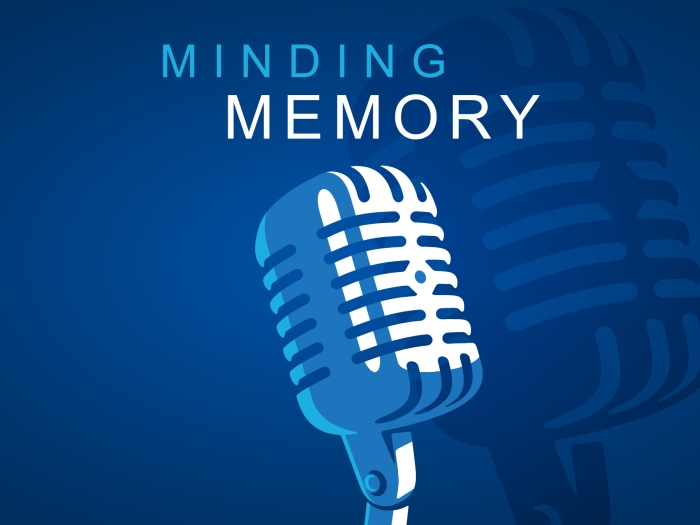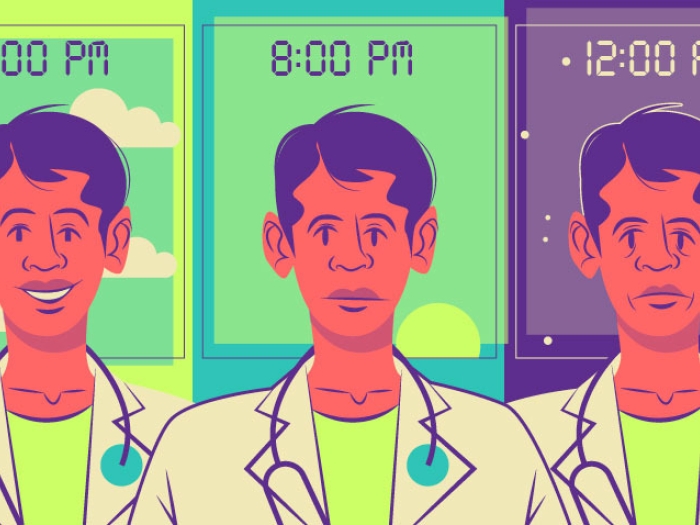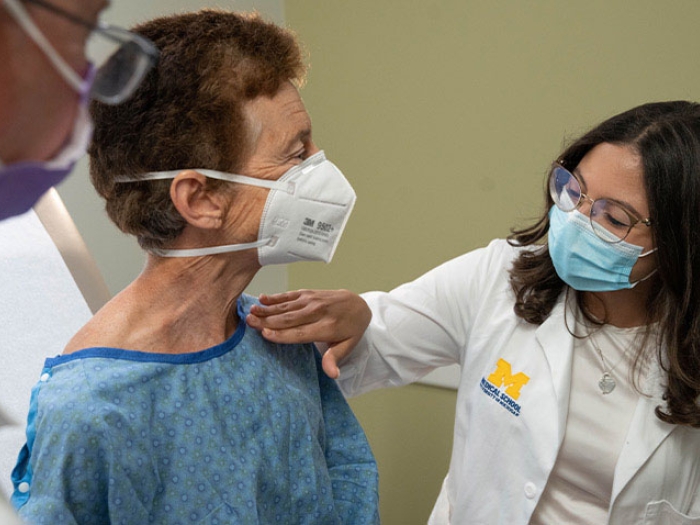Showing 61-75 of 77 results

Minding Memory
In this episode we discuss what’s known about the association between personality type and cognitive function. Further, the idea of resilience—or what protects the cognition of individuals with a high level of neuropathology associated with cognitive decline—might have important implications for dementia prevention. Our guests are Dr. Eileen Graham and Dr. Dan Mroczek. Drs. Graham and Mroczek are both faculty at Northwestern University with interests in how personality factors influence physical and cognitive health over the life course.

Health Lab Podcast
The 5 expert-approved steps to follow before, during and after your gatherings. Visit our blog for the full story.

Health Lab
The University of Michigan Medical School’s unique curriculum framework provides a new approach for students and future generations of physicians-in-training to explore their interests in a variety of clinical and non-clinical electives.

Health Lab
U-M Medical School’s competency-based education model is guided by the 8 core domains of competency, including complex knowledge, interpersonal skills, professionalism, critical thinking, and values to prepare the next generation of health professionals.

Health Lab
Depression and high numbers of duty hours worked by first-year doctors, called interns, are linked closely, with higher PHQ-9 screening scores among those working the most hours.

Health Lab
Critical for training future doctors, the program's director and an actual standardized patient discuss the benefits of the job.

Health Lab Podcast
A poll shows strong support for clinics’ efforts to screen for, and providing support for, social determinants of health.

Health Lab Podcast
Hundreds of thousands of surgical and dental opioid prescriptions are filled a month or more after writing, but one state’s law helped reduce this “delayed dispensing”.

Health Lab Podcast
Pill swallowing can be a difficult skill to learn for kids and adults, and for some kids, it's a skill they need to learn at a young age. In this short video tutorial, a child psychologist from the University of Michigan C.S. Mott Children's Hospital shares helpful tips for teaching your child how to swallow pills.

Minding Memory
If you’re new to dementia research, you’ll soon come to find that most research papers on dementia start off something like this: “In the United States there are 5.8 million individuals living with dementia and this is expected to increase to 13 million by 2015. . . .” In this episode we discuss the study on dementia prevalence that has been cited thousands of times with one of the authors. Dr. Jennifer Weuve from Boston University joins us today. We also talk more broadly about what makes a research paper highly citable in general.

Minding Memory
Our guest in this episode is Dr. Sara Adar. She is an associate professor at the University of Michigan School of Public Health in the department of epidemiology. Dr. Adar was the senior author on a study titled “Long-term community noise exposure in relation to dementia, cognition, and cognitive decline in older adults” that was published in the journal Alzheimer’s & Dementia. The study used data from the Chicago Health and Aging Project to examine the association between exposure to community noise and cognitive impairment. We talk with her about how exposure to noise affects cognition.

Minding Memory
In this episode we continue our discussion of the implications of the approval of Aducanumab. Our guest this week is Professor Nicholas Bagley. Prof. Bagley is a professor of law at the University of Michigan Law School and a contributing writer to the Atlantic. Recently he wrote an article titled “The Drug that Could Break American Health Care” that discusses some of the broader (unintended) consequences of the approval of Aducanumab. In this episode we discuss some of the broader cost implications of the new drug.

Minding Memory
Aducanumab is a new drug designed to remove amyloid in the brain. Following an accelerated process, the Food and Drug Administration approved Aducanumab as a treatment for Alzheimer’s disease despite (what many experts feel) little evidence of effectiveness. In this episode we discuss the approval of Aducanumab with Dr. Jason Karlawish from the University of Pennsylvania and talk about what it could mean for drug discovery going forward.

Minding Memory
In this episode we talk with Dr. Ken Langa about the implications of identification of “preclinical” Alzheimer’s disease (situations where individuals may have biological signs of Alzheimer’s but no symptoms). Ken is a leading dementia researcher and our discussion focuses on an article he published called “Preclinical Alzheimer Disease – Early Diagnosis or Overdiagnosis” that was published in JAMA Internal Medicine. In his article co-authored with Dr. Jim Burke, he brings up some of the potential indirect effects of early detection.

Minding Memory
In this episode we introduce ourselves and provide an overview of the Minding Memory Podcast. This podcast is supported by the Center to Accelerate Population Research in Alzheimer’s (CAPRA) at the University of Michigan. Our guest this week is Dr. Julie Bynum. Julie is the director of CAPRA and we talk briefly about what the NIH-funded research center is and how to get involved.